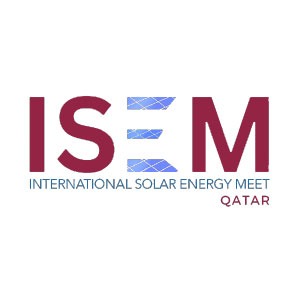- ASRY Awarded 2024 RoSPA Gold Medal in Health and Safety
- BP ponders shifting focus away from renewables, say sources
- QatarEnergy enters 10-year naphtha supply agreement with Japan’s ENEOS Corporation
- The International Energy Agency expects oil demand growth to slow in 2024
- The International Monetary Fund re-selects Kristalina Georgieva as its director
- Libya to target producing 1.4 million b/d by end 2024
- TotalEnergies launches the Marsa LNG project and deploys it multi-energy strategy in Oman
- H.E. Minister Al-Kaabi: Demand for oil and gas will continue for long; we have to be responsible, and Qatar is doing its part
- Egypt to stop exporting LNG starting from the beginning of May 2024
- QatarEnergy selects Nakilat to own and operate 25 conventional LNG vessels

Saudi Arabia to Oil Executives: Reduce your costs or leave the business

“It sounds harsh, and unfortunately it is, but it is the most efficient way to rebalance markets,” Saudi Arabia oil minister and the world’s most powerful oilman Ali al-Naimi told the audience in Houston HIS CERAWeek conference some days ago. Ali al-Naimi, brought a harsh message to Houston for executives hoping for a rescue from low prices: high-cost producers and many of them sitting in the room needs to either “lower costs, borrow cash or liquidate.”
Javier Blas, Joe Carroll of Bloomberg from Huston IHS CERAWeek conference said that the message from Saudi Arabia oil minister Ali al-Naimi means deeper spending cuts, laying off more roughnecks and idling drilling rigs.
As more than 70 producers from North America face severe difficulties and debts, Shale explorers will be forced to shut down in coming months amid a wave of restructurings and bankruptcies, while survivors will be more conservative, said Mark Papa in a discussion panel, the former EOG Resources CEO who helped create and support the shale industry many years ago.
The message will spread beyond the American energy industry as declining spending; rising debts and layoffs are starting to spread to Main Street, with the impact spreading from regional banks to the economies of Venezuela and Brazil. For the oil industry itself, the warning is a sign of more times of financial pain.
The Saudi Oil Minister Naimi told the executives in Houston that Saudi Arabia believed that freezing oil production, as just agreed with Russia, would be enough to eventually balance the market. Over time, high-cost producers will get out of the business, and rising demand will slowly eat up the oversupply, he said. The International Energy Agency believes that means another two years of low prices.
The freeze agreement isn’t “cutting production. That is not going to happen,” Naimi said.
Naimi faced in Houston the same people that Saudi Arabia is trying to put out of business, from North Dakota shale and Canadian tar sands to the deep-water fields offshore Brazil, those who need prices far above current levels to make profits. For the past year and a half, they have been fighting for survival after Naimi led OPEC into a price war against high-cost producers.
While Naimi insisted that Saudi Arabia wasn’t at war with shale, or any other producer, he was clear in his aim. “We are doing what every other industry representative in this room is doing,” he told the audience. “Efficient markets will determine where on the cost curve the marginal barrel resides.”
Worthy to mention that OPEC, which accounts for roughly 40% of the world’s oil supply, first ignored the shale revolution only to later realize its power as shale wells flooded markets. Today, OPEC is still coming to terms with the revolution, surprised by its flexibility in the face of low oil prices.
Source: Bloomberg










